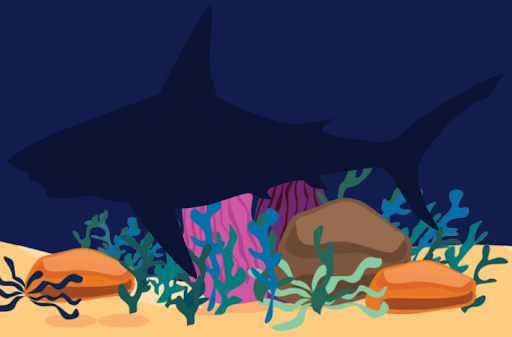Kailey Krantz | Staff Writer
Climate change is a never-ending issue which means constant efforts need to be made. Our beautiful ecosystems are at risk and more needs to be done to minimize the effects of climate change.
Summer is just around the corner and many of us are heading out to Florida’s beaches. We tend to take for granted the beauty of these beaches but we need to realize that climate change is a slow and dire consequence.
Even though the effects of climate change are not immediate, we shouldn’t ignore the issue. Rather we should be advocating for more effective change.
Climate change has already actively and negatively affected migratory species like sharks, rays and other creatures that migrate to warmer waters to find food and reproduce.
A research paper published by the Nature Climate Change last week found that shifts in ocean currents and pressure systems are increasing the frequency and intensity of upwellings.
Upwellings are when warm water is moved offshore by surface winds and cold water rises towards the surface to replace it.
The water that comes from an upwelling may be rich in nutrients, but it comes with a caveat.
The water that replaces it comes from the depths of the oceans, making the surface water colder and can make it difficult for marine life to adjust their body temperatures on a whim.
The more intense the upwelling is, the colder the water when it reaches the surface, which can lead to a sharp and uncomfortable temperature for marine life.
As mentioned in one of my previous articles, sharks are a keystone species in marine life that can have tremendously negative effects if their numbers dwindle, leading to fish and other aquatic species overfeeding on coral and decimating the ecosystem around them.
It cannot be stressed enough how the ocean’s temperatures are so imbalanced because of climate change. These creatures are going to hotter waters, only to be caught and killed by the intensely frosty waters of the deep.
Once one ecosystem is gone, it becomes a ticking time bomb before the other ecosystems start to dwindle and disappear.
There are efforts being made to combat the devastating effects of climate change in our oceans such as biodegradable straws for fish to feed on to steer them away from the new coral they’ve grown and placed in their habitat.
These researchers are taking this idea and making it more eco-friendly by acting as mini-feeding stations for fish while the new corals are growing and getting used to their new environment.
The problem is that the new corals would give fish the chance to prey on them long before they are fully mature, making the number of corals in the reef lower than before these new ones were planted.
Even though biodegradable straws are being made in an effort to combat climate change, it is only a small step to a larger issue.
We see ecosystems being underappreciated on campus as well. Despite the environmental strides we are making with the FIU Nature Preserve, it is still regarded as one of the most neglected areas on campus.
We are the generation that should be looking after our oceans and fight to keep them healthy.
While the oceans are rising in temperature, there’s still some hope in saving it. We must continue to protect our oceans if we want to see them thrive in the fore“sea”able future.
DISCLAIMER:
The opinions presented on this page do not represent the views of the PantherNOW Editorial Board. These views are separate from editorials and reflect individual perspectives of contributing writers and/or members of the University community.


Be the first to comment on "Climate change is upending our oceans"